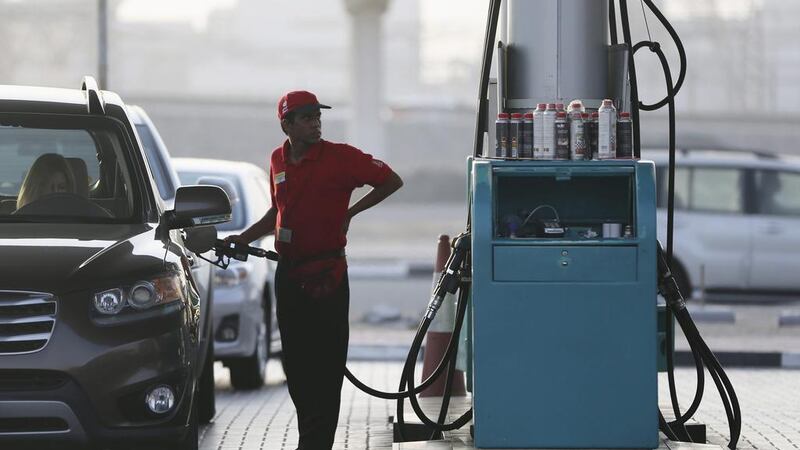Motorists in the UAE will pay the same at the pumps in February.
The Fuel Price Committee has announced no change to the cost of Special 95 and Super 98 for next month. Diesel will rise by 2 fils.
This comes on the back of the flat prices experienced in January - the first time that there was no monthly movement since the UAE liberalised prices in August 2015 so that they adjust with the market.
Here is the breakdown of prices per litre:
• Super 98: Dh2.24
• Special 95: Dh2.12
• Diesel: Dh2.40 - up from Dh2.38 in January
February’s fuel⛽ prices as per the #UAE fuel committee are out. Check them below. #InspiringEnergy
— ENOC (@enoc_official) January 29, 2020
إليكم أسعار الوقود ⛽لشهر فبراير وفقاً لما ذكرته لجنة متابعة أسعار الوقود في الإمارات. #طاقة_مُلهمة pic.twitter.com/8iBHQ2dQTp
The cost of Super 98 and Special 95 is at a similar level to when the price switch was made four-and-a-half years ago.
It rose to a peak in mid-2018 when drivers were shelling out as much as Dh2.63, before it dropped down as low as Dh1.84 and has since settled at around the current rate in recent months.
Some drivers in the UAE are also facing additional costs in the coming months after toll gates were introduced in Abu Dhabi.
The tolls went live for the first time on January 2, however the Integrated Transport Centre (ITC) announced a three-month grace period for unregistered vehicles.
Meanwhile, the oil market suffered a five-day rout earlier this week on the back of the coronavirus outbreak in China amid fears it could hurt demand. Prices then picked up, with Brent trading at $60.04 in London on Wednesday.
"While the coronavirus continues to spread both in and outside China the market is trying to adjust positions across all asset classes," said Saxo Bank analyst Ole Hansen.
Saudi Arabia's Energy Minister, Prince Abdulaziz bin Salman moved to reassure markets on Monday in a statement carried by official Saudi Press Agency.
“The current impact on global markets, including oil and other commodities, is primarily driven by psychological factors and extremely negative expectations adopted by some market participants despite its very limited impact on global oil demand.”
“Such extreme pessimism occurred back in 2003 during the SARS [severe acute respiratory syndrome] outbreak, though it did not cause a significant reduction in oil demand,” he added.








